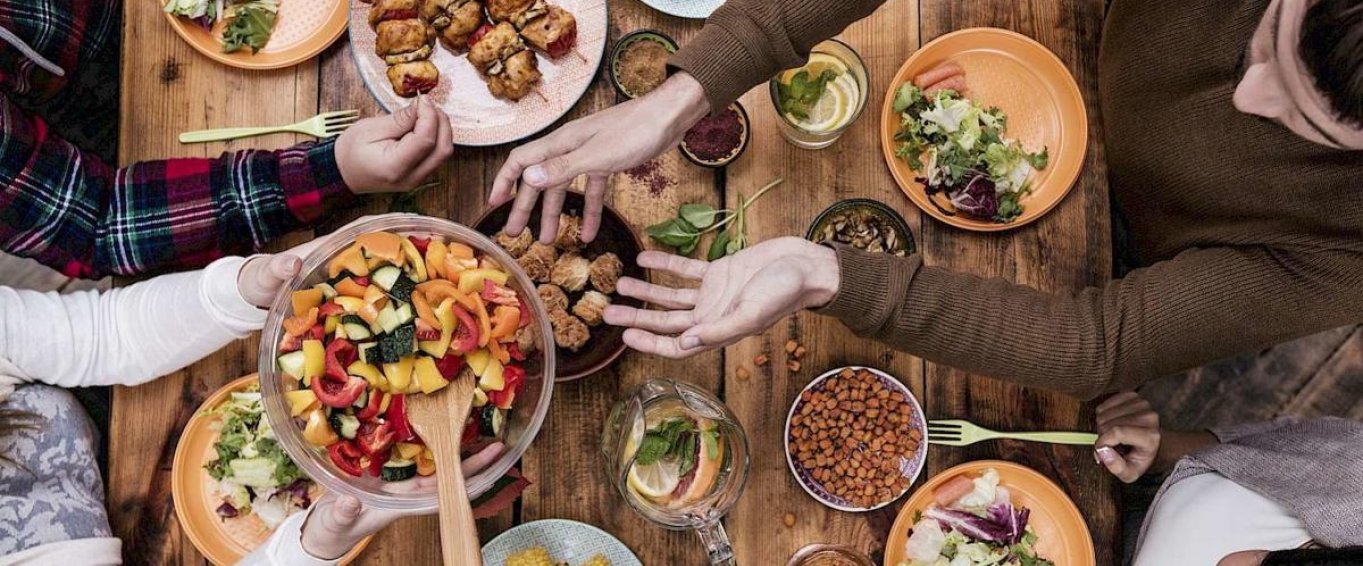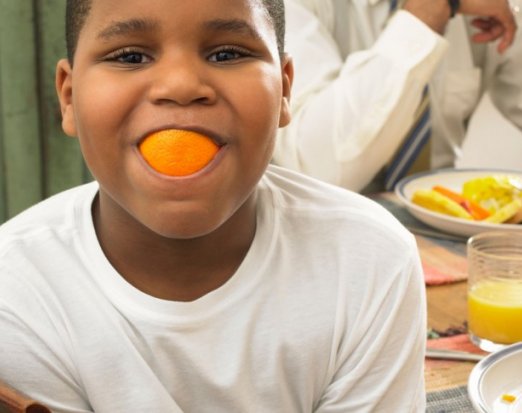Cooking in a Crisis – How to Eat Healthy in 'Lockdown'

Today, our nation's families are waking up to a different world. For the first time in living memory, the UK's schools are closed. Excepting for the children of critical workers, home schooling is now the norm for all of us.
The challenges this creates are simply immense, so big we won't fully understand the consequences until the Covid-19 crisis is over. For now, the way we survive is day by day. We must learn new ways to stay healthy and teach our children how to stay healthy.
With that in mind, we're sharing some valuable nutrition tips today. Healthy eating is particularly important during an epidemic because, the stronger your child's immune system, the better their chance of fighting off viral nasties. While it may be tempting to stock up on dried pasta and rice, these staples are not very nutritious on their own.
Fruits and vegetables - fresh, frozen, dried or canned - should be on your shopping list as often as possible to ensure children get lots of immune boosting vitamins and minerals. Here are some more tips for eating healthy in a crisis.
Plan Every Shopping Trip
Supermarkets are essential resources which makes them busy, crowded and chaotic. To reduce the amount of time spent there, plan every visit. You don't need to schedule every meal for the next fortnight but do shop for enough food to last at least one week.
The majority of fresh fruits and vegetables will last a week or longer. Frozen and canned veggies are long lasting and, contrary to popular belief, WILL provide children with plenty of nutrients. Buying prepared (sliced, diced, etc) frozen veggies is a great way to save time if you're now juggling extra childcare.
Top Tip: Ask your child to compile a list of food items (and their quantities) in the kitchen. Then, together or independently, encourage them to find corresponding recipes online or in a cookbook.
Take It Back to Basics
Ongoing discussions about food supplies and the 'right' and 'wrong' foods to shop for can be valuable to young people. Generally speaking, meals made up of several ingredients (even something as simple as a cheese omelette) are healthier than readymeals as there's more transparency around ingredients.
So, take it back to basics. Cook simple meals with two or three ingredients and consider the steps required. Why does egg start off see through and get yellow in the pan? How do we know chicken is hot enough to eat? Why do we whisk things?
Top Tip: You don't need to know the answers to any of these questions to teach your child something valuable. Go on a journey of discovery together. Couch your questions in the language of science. Every meal is a chance to do a chemistry experiment together.
Do Things Differently
We're all set in our ways but now is the perfect time to try something new. If you're low on meat, try a veggie version of your favourite meal. If dried pasta is unavailable, have a go at making some using eggs, plain flour and a little cooking oil (it's easier than you think!)
Now is the time to be creative. If you'd normally eat half a cabbage and throw the rest, now is the time to get thrifty. Baked tortillas make excellent (and healthy) pizza bases. Stale bread makes wonderful croutons. Hard, crusty cheese can be added to Mexican sauces. The lentils in the back of your cupboard are ideal for fattening up soups.
Top Tip: Ensuring a child continues to learn while they're out of school isn't easy. So, take every opportunity to get your child involved in food decisions. Run out of spaghetti for the bolognaise? Ask if they can think of alternatives. Treat it as a research project. Which is the healthiest option? Which has the most sugar? What nutrients might the meal be missing without spaghetti? Can you get these nutrients anywhere else?
Eat Together Whenever Possible
For most, this social isolation phase means spending all or most of our days at home. Commuting home from the office now means stepping out of the bedroom and onto the sofa. Where possible spend that extra time sitting down to eat as a family.
Children who eat structured family meals maintain a healthier bodyweight, have a lower risk of depression and fewer behavioural issues. It's a great opportunity to catch up, regroup and find what's been important to your child today.





